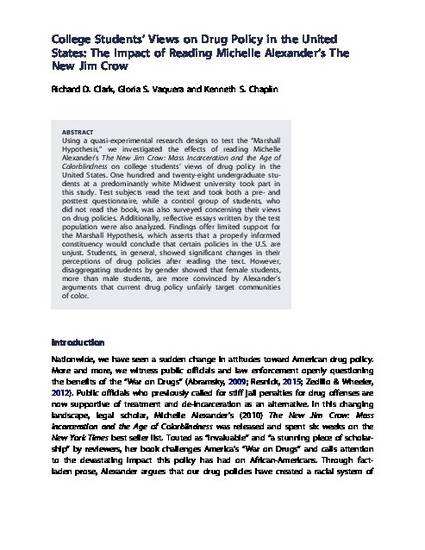
Using a quasi-experimental research design to test the “Marshall Hypothesis,” we investigated the effects of reading Michelle Alexander’s The New Jim Crow: Mass Incarceration and the Age of Colorblindness on college students’ views of drug policy in the United States. One hundred and twenty-eight undergraduate stu- dents at a predominantly white Midwest university took part in this study. Test subjects read the text and took both a pre- and posttest questionnaire, while a control group of students, who did not read the book, was also surveyed concerning their views on drug policies. Additionally, reflective essays written by the test population were also analyzed. Findings offer limited support for the Marshall Hypothesis, which asserts that a properly informed constituency would conclude that certain policies in the U.S. are unjust. Students, in general, showed significant changes in their perceptions of drug policies after reading the text. However, disaggregating students by gender showed that female students, more than male students, are more convinced by Alexander’s arguments that current drug policy unfairly target communities of color.
Available at: http://works.bepress.com/gloria_vaquera/4/
